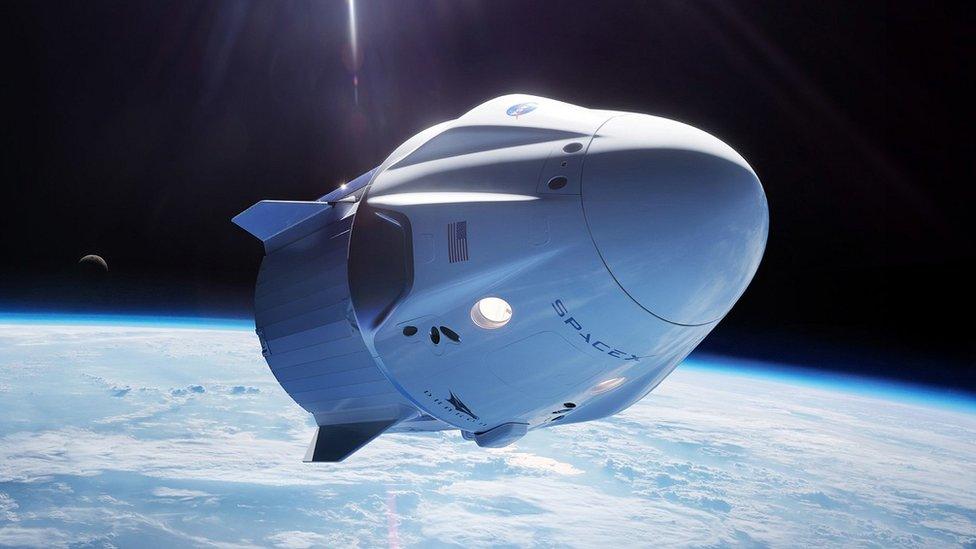Nasa SpaceX launch: Big day called off because of weather
- Published
- comments
Bad weather conditions delayed Wednesday's launch attempt
Poor weather has forced SpaceX to call off the launch of Nasa astronauts Doug Hurley and Bob Behnken to the International Space Station (ISS).
The two men were due to go up from the Kennedy Space Center in what would have been the first orbital mission from the US in nine years.
But unfavourable atmospheric conditions prompted controllers to call a stop just 16 minutes before lift-off.
The next opportunity for SpaceX and Nasa will come on Saturday.
If that's no good, there would be a third opportunity on Sunday.
The frustration was that conditions just an hour after the designated launch time of 16:33 EDT were probably acceptable.
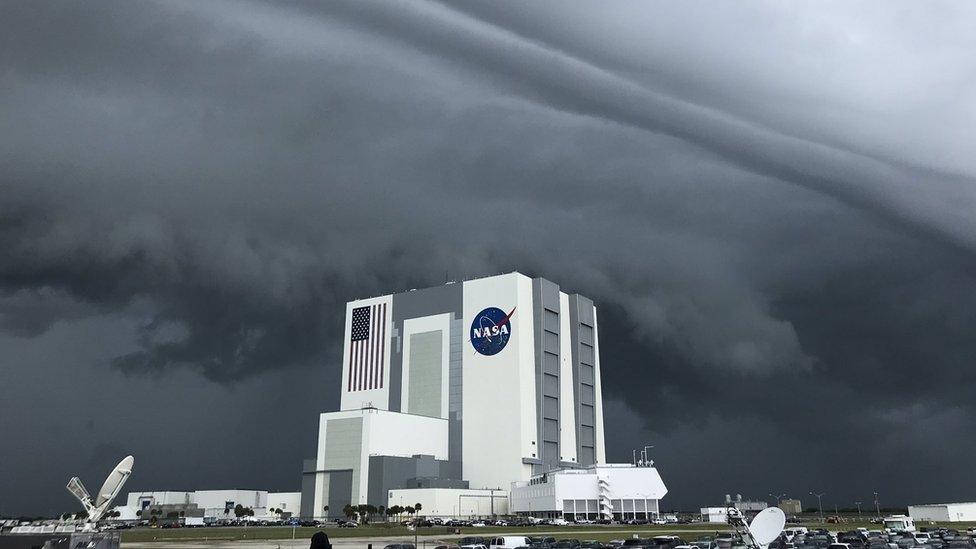
Dark, threatening clouds shrouded Kennedy through much of the day
But this was an instantaneous launch window where the SpaceX Falcon rocket and its Dragon crew capsule had to leave on time or they wouldn't be able to catch the space station.
It meant everyone had to stand down, including President Donald Trump and First Lady Melania Trump, and VP Mike Pence and his wife, Karen. They'd all flown in to watch the historic launch.
"I know there's a lot of disappointment today. The weather got us," reflected Nasa Administrator Jim Bridenstine. "But this was a great day for Nasa and for SpaceX. Our teams worked together in a really impressive way, making good decisions all along. So, let's go; let's go get this done. Saturday is going to be a great day."
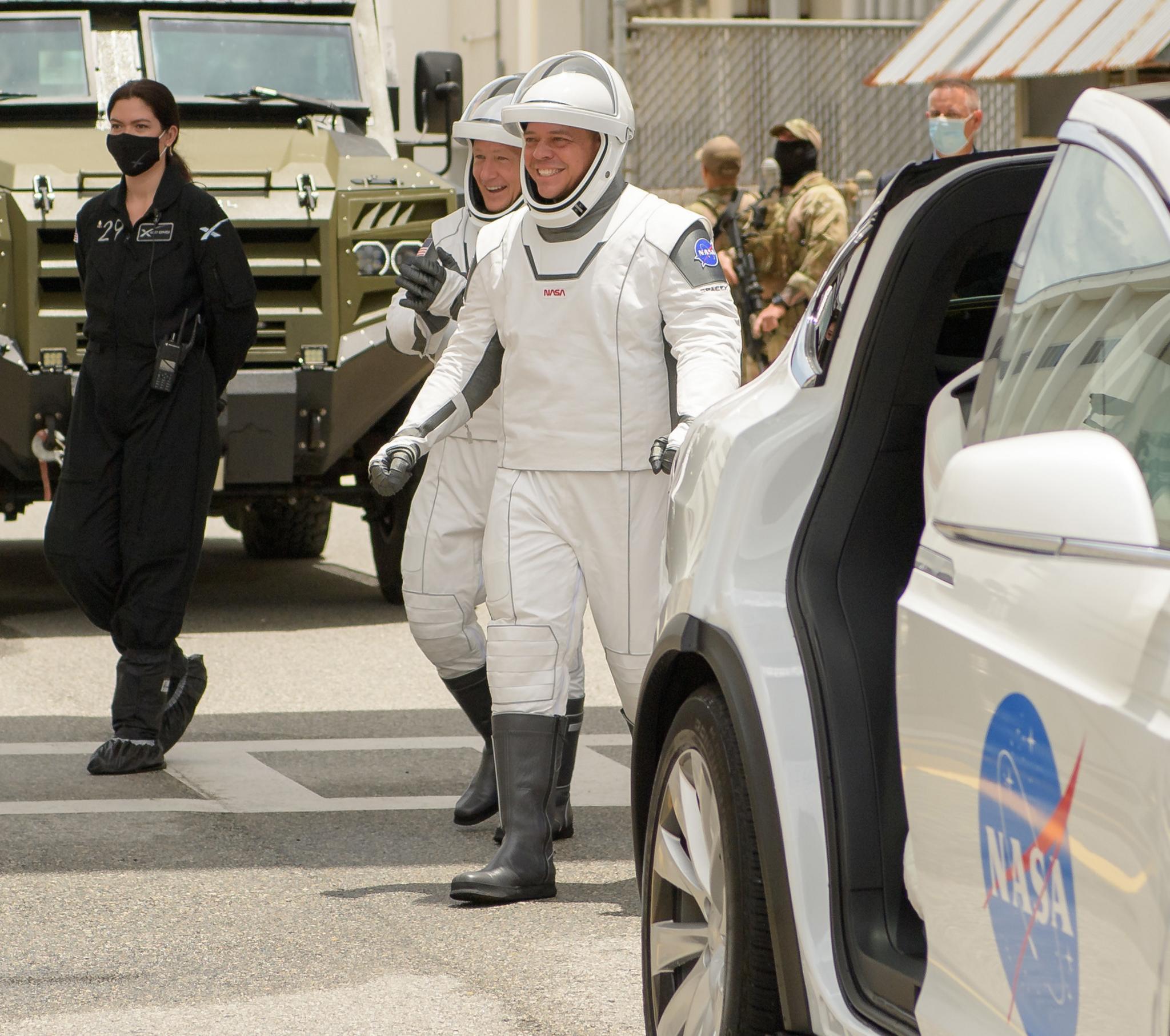
The astronauts will come back on Saturday for another go
There is great interest in this mission. Not since the retirement of the shuttles in 2011 has America been able to launch its own astronauts into space - a big gap in which the US has had to rely on Russian Soyuz vehicles.
But Hurley's and Behnken's mission is about more than just pride.
Nasa is giving up its past practice of owning and operating the space systems it uses in low-Earth orbit and intends in future simply to buy crew transport services from the private sector - much like a company might outsource its payroll or HR needs.
SpaceX is the first of these new service providers.
Mr Bridenstine believes the approach will save his agency money that can then be spent on missions to the Moon and Mars.
"We envision a future where low-Earth orbit is entirely commercialised, where Nasa is one customer of many customers, where we have numerous providers that are competing on cost, on innovation and safety," he said.
"We are proving out a business model that ultimately will enable us to go to the Moon, this time sustainably. In other words, we're going to go to the Moon to stay."
Wednesday's launch attempt went ahead against the background of the coronavirus crisis. Crowds were encouraged not to assemble near the Kennedy complex, and Nasa itself severely limited the number of guests invited on to the site.
As for the astronauts, they would ordinarily observe a quarantine before flight. But again Nasa reduced the number of people the men could come into contact with, and those that had to get close were instructed to wear masks.
Saturday's opportunity, if taken, will be at 15:22 EDT.
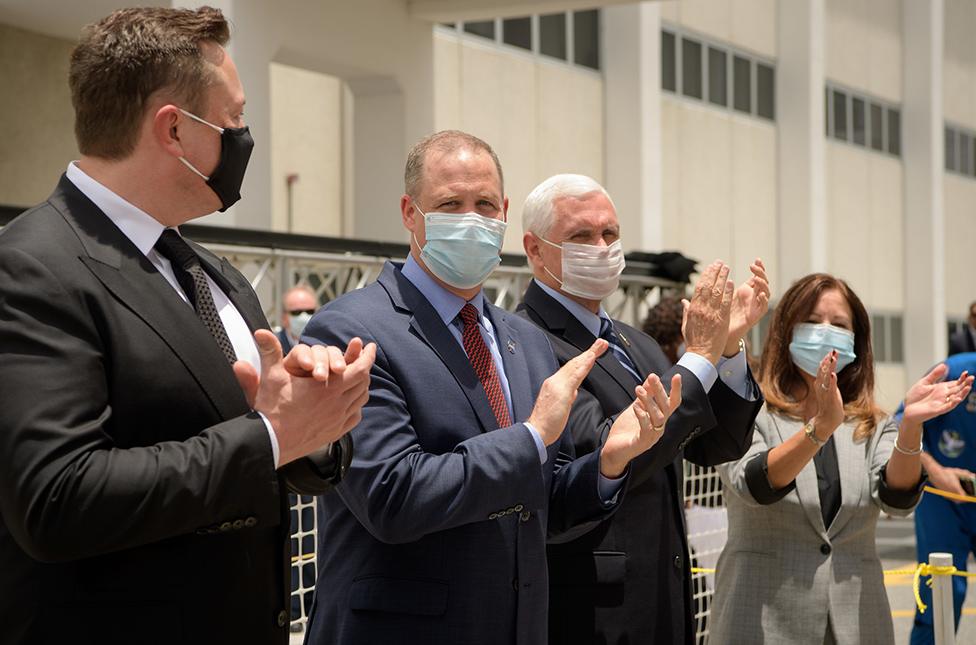
Guests at Kennedy were limited in number and wore masks because of coronavirus
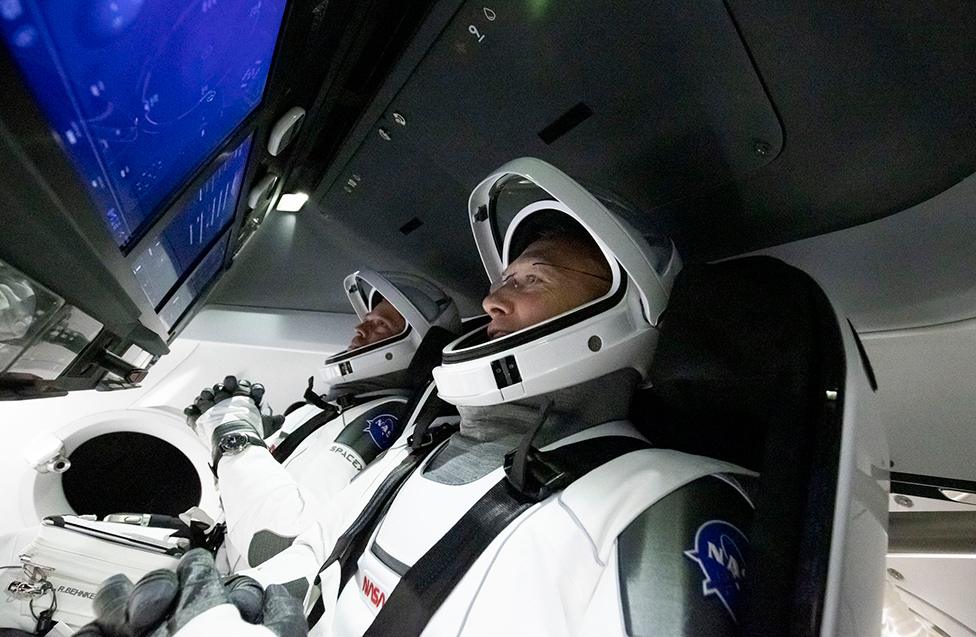
Doug Hurley and Bob Behnken got in the capsule and closed the hatch
Jonathan.Amos-INTERNET@bbc.co.uk, external and follow me on Twitter: @BBCAmos, external
- Published28 May 2020
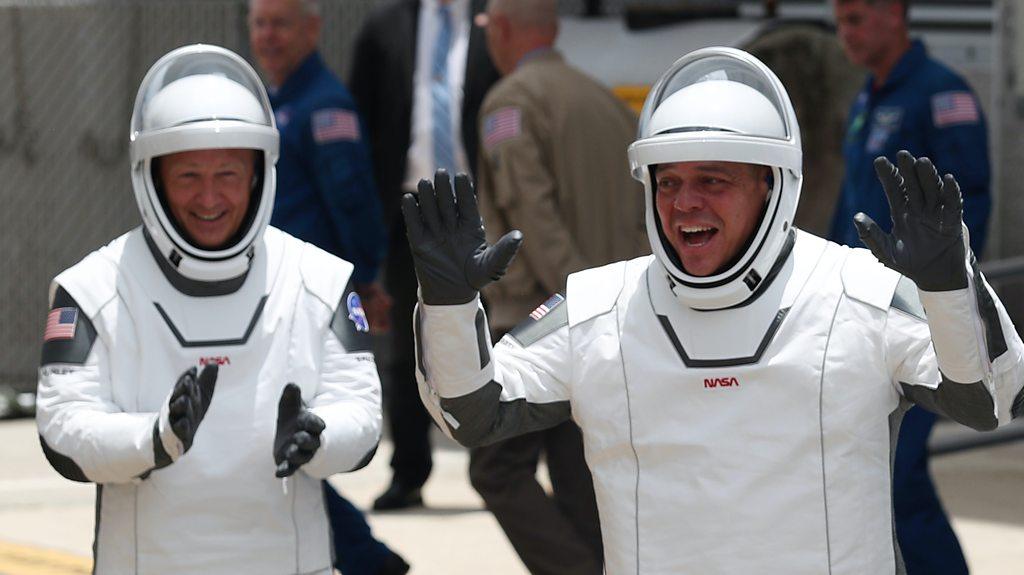
- Published27 May 2020
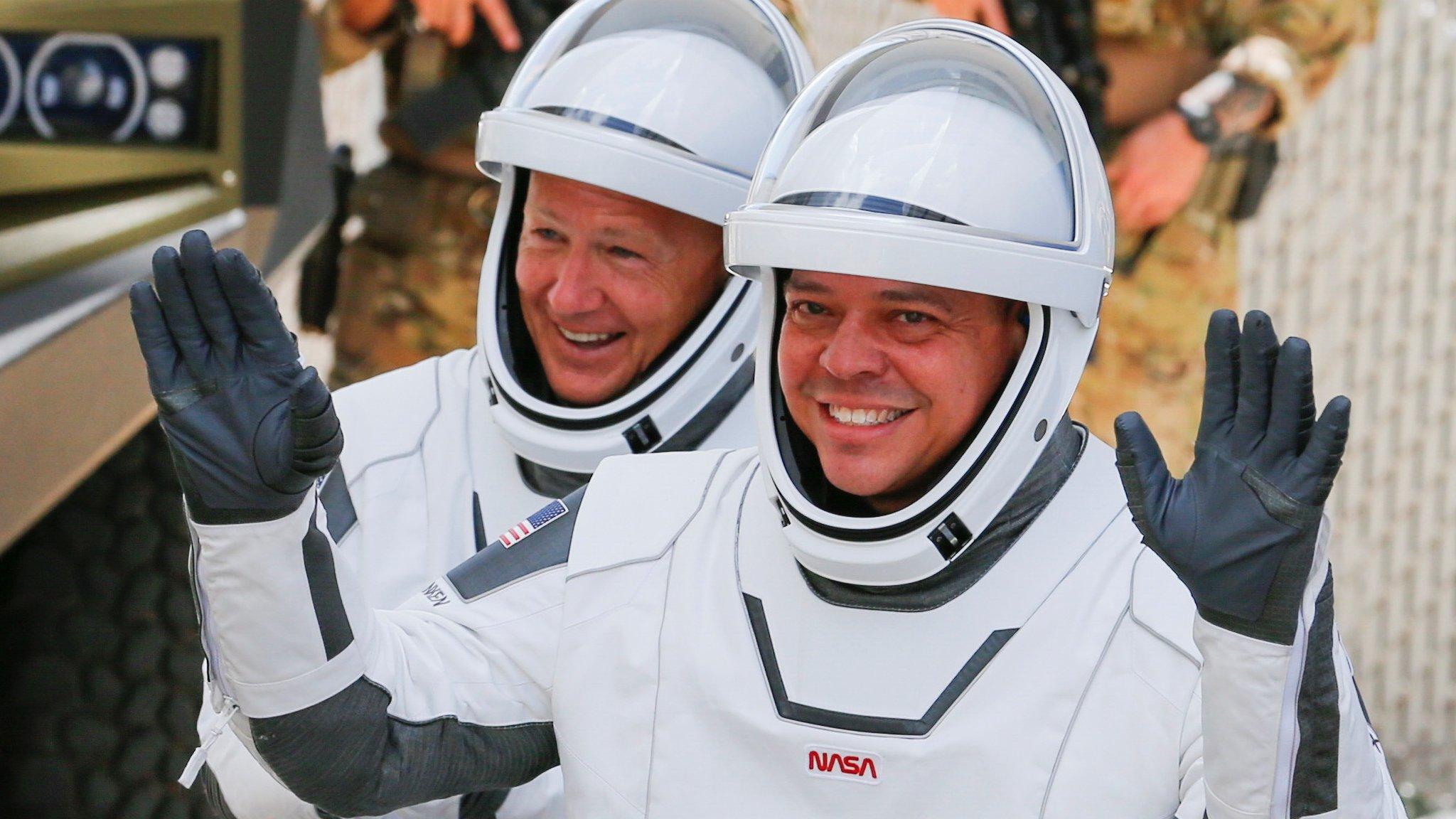
- Published24 May 2020
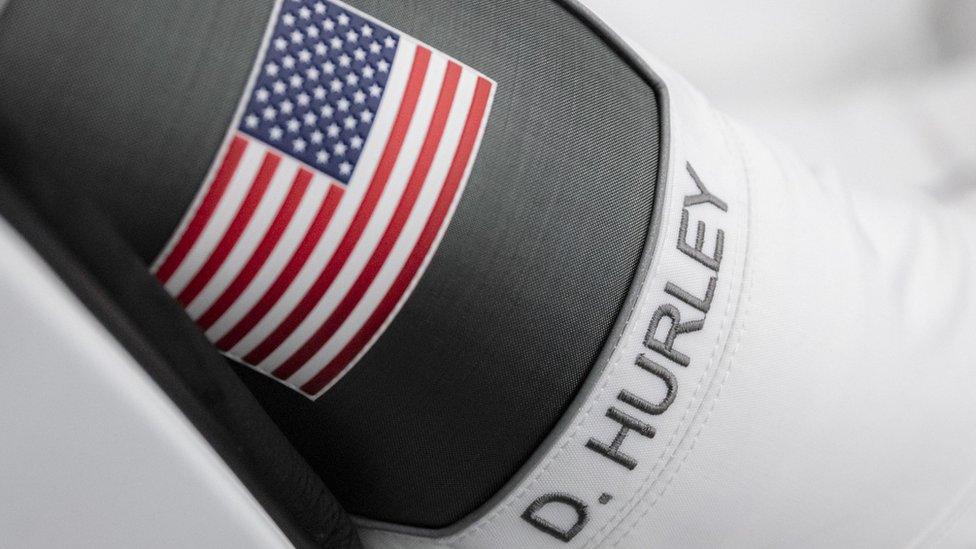
- Published23 May 2020
